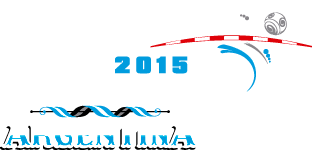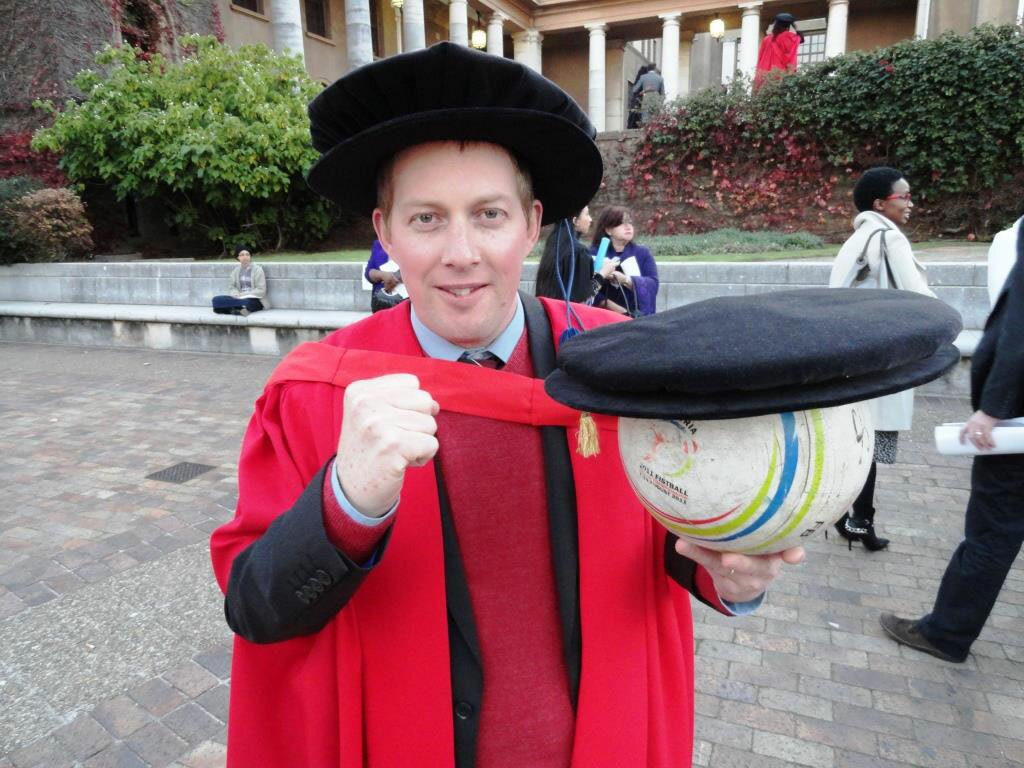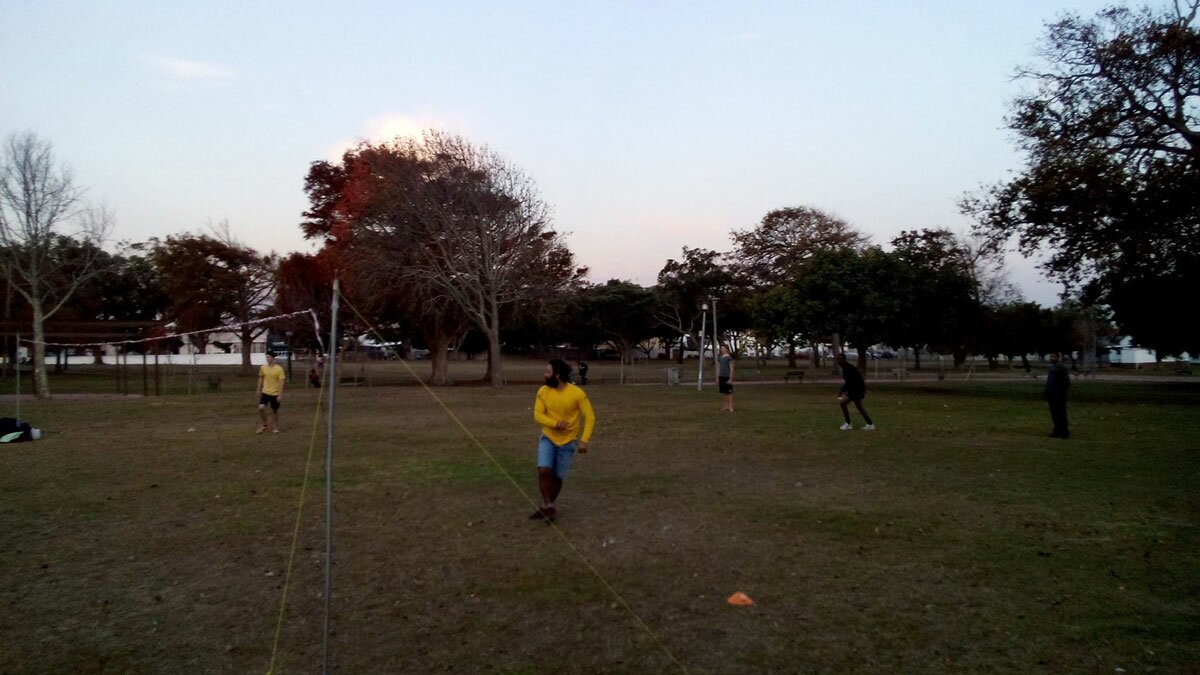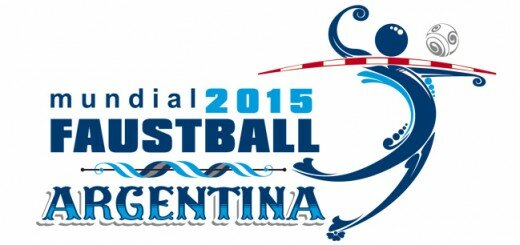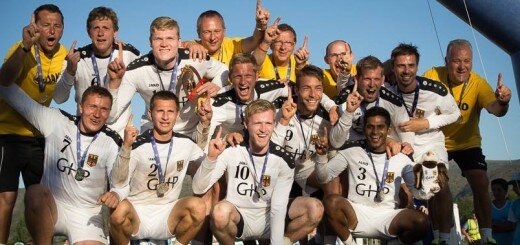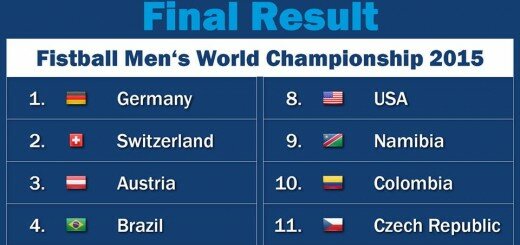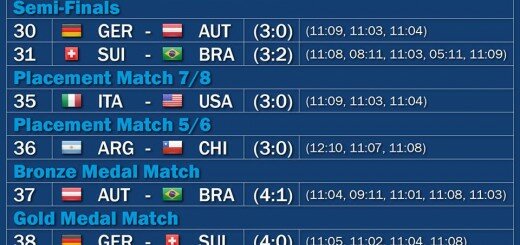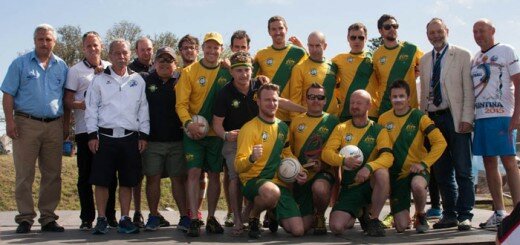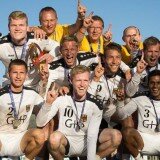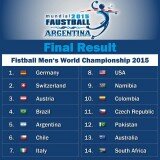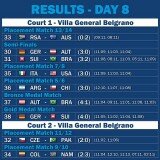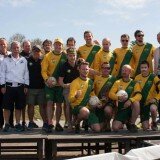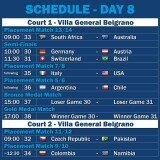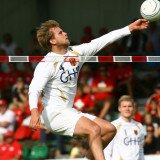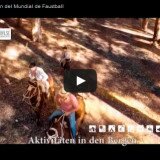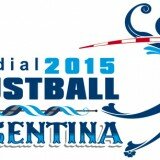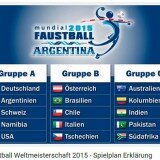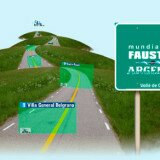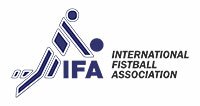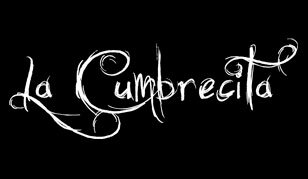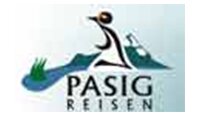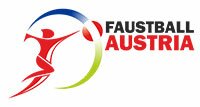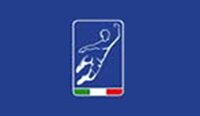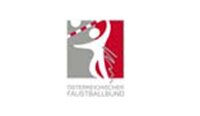Andrew, national Coach of South-Africa Fistball
Hello Andrew, you are the national Coach of South-Africa Fistball. You aren’t a born South African at all; you are Zimbabwe, but living there for some years and are a citizen of the country now.
IFA: How long is Fistball already existing in South Africa? How does it come to you? And how is it supposed in South Africa?
Andrew: The truth about the South African fistball team (the Mighty Galjoens) is that we are in a very unique position. The sport was only introduced for the first time in South Africa just over a year ago (ignoring the fact that Namibia was once technically part of SA before 1994). In South Africa, football (soccer) is by far the most popular sport, followed by rugby and cricket. Other sports like volleyball and tennis are widely played at schools and clubs, but nobody knows anything about fistball.
I am not the founder of Fistball South Africa, but I am a player of the sport since last year, and a member of the association. A colleague of mine, Leif Peterson, founded FSA, along with a few others of the founding players, who were also friends of Leif’s. I joined a few months later as I was busy writing my PhD thesis and did not have time in the beginning.
The journey of Fistball South Africa started with a conversation between two brothers over some beers a few years ago. Approaching their late 30s and with full-time jobs and families, they discussed their childhood dream of representing their country in sport (they were born in Australia), a dream that was seemingly fast-fading. Leif has lived in South Africa since the 1990s and is a naturalized citizen, is married to a South African and adopted SA as his home. But his brother remains in Australia. While discussing this lost dream, they came to the realization that maybe the problem was not with them, but with the mainstream sports on offer (cricket, rugby etc.) which have thousands of players competing for a place in one team. This seeded the idea that if only they could introduce a new sport to either Australia or South Africa which nobody played, maybe, just maybe, they would be able to realize their dream of playing for their country(ies) after all. Leif’s brother was the first to stumble across this unheard of sport called fistball, popular in certain European countries and a couple of others. He soon roped his friends in and started a league.
After a few months, the new Australian league came to the attention of people in Pakistan, and the Aussies were invited over there in 2014 for some games. It was this moment and the realization that this idea could be a real possibility, and that his brother was now an actual national team sportsman, than sparked Leif into action in South Africa. Not to be outdone by his younger brother, Leif started the fistball league in South Africa, roping in his friends and colleagues in Cape Town along the way.
Since then, the association has been working hard to spread the sport in South Africa. Three teams were initially founded – one team whose players were predominantly from Durban (North Beach Knuckledusters – which I play for), one team representing Johannesburg (Goldfisters), and one from the Western Cape (Kaapse Fisters). Although we tried for this national footprint, the fact is that the sport is still growing out of Cape Town and it will take a while, and lots of support to take it around this big country. Our first tournament in September last year featured these three teams. Since those days, there has been quite impressive growth in interest and participation in Cape Town. At the second tournament in March, five teams participated, and in July – where we held the tournament in a 40 000-seater football stadium to ramp up attention to our campaign), there were eight teams and over 100 spectators. One of the teams – the Helderburg Hulks – spontaneously started up in another small town called Somerset West, showing that interest in the sport can be replicated in other areas. (It is not just men who have participated, but also women who have played in these teams, although it is still mainly played by men.)
Another encouraging sign is that we have some teenagers who have started playing fistball, and they are really keen and good. While they are currently too young to be selected for the Galjoens, they will be really hot in a couple of years’ time, so watch this space. We are also very happy that the sport has so far attracted players from a wide variety of racial and socio-economic backgrounds. As you can see with our team photo, the Galjoens are fully representative of the cultural diversity in South Africa, which is great (our rugby team has recently been criticized for still being predominantly white).
IFA: How can we imagine Fistball looks like in South Africa?
Andrew: Before I answer the rest of your questions, let me just add that we are a bunch of guys who are really enthusiastic about this sport. We have all played various sports before, but fistball has really bitten us hard. It is so contagious! It has the right combination of skill, power, teamwork, strategy, endurance and fun. We call it “volleyball on steroids”.
But we have had to make do with some really basic things starting out. Our nets are two camper van poles with string and hazard tape strung between them. We play in a public park where we often get asked for our permit from the security guards, or even get locked in if we stay too long. The pitch is bumpy and sometimes covered with bird and dog poo. Other park users often walk right through the court when we are in the middle of the game. Our physic is a traditional bush doctor who Leif met through his conservation work. He gives us his traditional Khoi pain oil when we have an injury. So you see, we are really starting from the grassroots!
That brings me to my role – the coach. The truth is that there is not really one coach. I have been asked by Fistball South Africa to stand in this role for now, but the truth is that we are just a bunch of guys passionate about this sport and trying to learn by watching YouTube videos of games in Germany and then giving each other tips about strategy, technique and so on. We were really just “ball bashers” with no idea about the game (we were literally making it up) until we got a visit in January from a veteran Namibian player – Michael Baas – who has played for Namibia in three world championships. He was like some kind of fistball deity who dropped down from heaven for an afternoon. He taught us much of what we know about how to play in that one session. We were doing so much wrong before then! He taught us how to set, how to serve, how to defend and so on. And then he disappeared, and we are left trying to fashion ourselves in his image!
So the fact is we watch videos and try to help each other out. There is a kind of brains trust of the most enthusiastic guys who share knowledge and really just coach each other. I then got injured for a few weeks and could not play, so while I was out, I was refereeing the training matches and noticing things, which I would then feed to the national team guys. We would watch videos of German games and we would talk strategy and technique with the guys. So this is really the only capacity in which I can be called a “coach”. Otherwise I am just an ordinary player. But I have always enjoyed theory and strategy of any sport I have played, even if my execution is not up to scratch!
IFA: You aren’t the only country who will take part for the first time (except as South-West-Africa in Schweinfurt 1972). How do you think are your chances against the other newcomer?
Andrew: So, how will the Galjoens do against the other newcomers and the smaller teams? Our goal is to at least beat Australia (where Leif’s brother plays). That’s right. This is also a sibling rivalry gone wrong! We also want to compete and hold our heads up high against the other smaller teams we meet there. We have been watching footage from the previous (2011) world champs, and honestly, our standard and style of play is not far off some of the teams who were playing there, such as Serbia and the USA. I think we could have challenged those teams for sure. Because we are self-taught, we also have a few surprise home-made moves we will play on those teams that we have perfected in training in our tough conditions. So we are hopeful of doing well against at least two of the teams in our group. We have to be realistic, but I know the guys will be giving it their best shot and just enjoying the privilege of representing SA and being at the World Champs. It will be a huge learning curve but the guys are up for it.
IFA: The Fistball association in SA is very young. How is the public interest? Is it easy to find sponsors and how or who will pay your trip to Argentina?
Andrew: As far as support and sponsors are concerned, it is tough. We have approached many companies to ask for support for the league and the trip to Argentina. We are hoping that all our publicity around the World Champs will attract support, but it is really difficult to get corporates to understand what we are trying to do. We are hoping a few key corporate sponsors who have shown tentative interest so far will come on board soon. These challenges will not prevent us from developing the sport in South Africa going forward.
IFA: Is there a fan crowd who will come along with you and your team?
Andrew: The same constraints apply to the fans. There might be one or two guys who go along with the team, but to be honest, they might just have to get involved and help out as we really do not have a big delegation!
IFA: Tell us the size of Fistball in South Africa; are there some divisons or only some teams? How is it organized and how many teams have players in the national team?
Andrew: Fistball South Africa, which is a completely voluntary non-profit organization under South African law, organizes the sport and has been responsible for putting the league, tournaments, our publicity and the national squad together. This squad’s size is limited by the fact that we cannot afford to send a large contingent. There are two players from the Kaapse Fisters, three from the Goldfisters, and two from the North Beach Knuckledusters. There are other players who are talented who could not be included in the squad because they cannot afford the time off work, or the cost of traveling to Argentina. So a decision was made that those who could afford to put in some of their own resources or spend lots of time and effort fundraising would get a chance to go to Argentina. Even in my case, I cannot afford the time or the expense, so I will not be accompanying the team. Next year we plan to go to Namibia for a tour, so hopefully those of us who missed out this time will make it then. It’s a case of trying to give everyone who is committed a chance, rather – at this point – than of looking for the absolute best players out there and sending them to represent South Africa.
IFA: The Galjoens have challenged Patrick Thomas and the Germans. How does it come to the idea and also to the name? Have you a masterplan to defeat the Germans?
Andrew: Obviously challenging German, or even one of the other first tier teams is a much longer-term goal. So why did we challenge Germany and Patrick Thomas? Well, as he himself realized, we have been running this crowd funding campaign and we really wanted to raise awareness about our dream to go and play in Argentina. So we decided to do a series of funny videos which would raise awareness about fistball and the Galjoens. We had been very generously donated a whole lot of balls by Roger Willen and co, including some match balls for Argentina. These have Patrick Thomas’ signature, so we obviously realized he was a big shot in world fistball.
We then saw him on YouTube giving an interview and demonstrating his terrifying serve! He really is an awesome player with his height, his power, his accuracy and so on. So our “challenge” was really more self-mocking. Rather like a soccer team from Zimbabwe challenging the German soccer team and their best player. But what was amazing was his response. It was so cool! It was for us, like Bastian Schweinsteiger responding personally to us! So that was much appreciated. We obviously have the greatest respect for the German team and hope to at least meet them off the pitch and share a few drinks and tips about fistball!
So our master plan to defeat the Germans will have to wait. You guys have been playing the game for a long time! For now, we have a master plan on how to beat the Australians.
We are hoping to be the Cool Runnings story of the fistball World Champs, so let’s hope we can raise enough money to get the team over there.
Ok Andrew, thank you for your answers and all the best for Argentina!!
